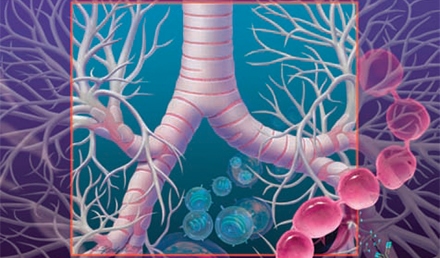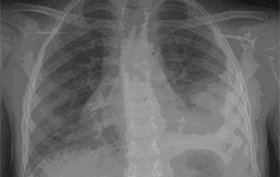John Shufeldt, MD, JD, MBA, FACEP I just returned from Boston, where the American College of Emergency Physicians held its national conference. While there, along with learning (and relearning) some emergency medicine, I had the change to walk along the Freedom Trail and enhance my understanding of our battle for independence. What continually amazes me is how fortunate we were to actually succeed. Many times the only thing which turned the tide and saved the …
Read More
A Child with Constipation and Swollen Abdomen
Urgent message: Malignancies in children are often discovered only inadvertently, in conjunction with seemingly less dire presentations. Awareness of relevant signs and symptoms by the urgent care clinician can be invaluable in identifying tumors that might otherwise escape notice until they are at an advanced stage. Muhammad Waseem, MD Introduction The identification of a palpable abdominal mass in an urgent care center or emergency department is quite concerning, as it represents a serious underlying disorder. …
Read More
Treating Common Upper Respiratory Tract Infections in an Era of Increasing Antibiotic Resistance
Urgent message: Thorough evaluation and thoughtful prescribing can help ensure responsible, effective care and patient satisfaction. Joseph Toscano, MD Introduction Upper respiratory tract infections (URTIs) are among the most common reasons patients seek assistance in urgent care practice. The common cold, otitis media, acute sinusitis, and acute pharyngitis are well known to patient and provider alike. Acute bronchitis is a lower respiratory tract infection, with features similar to URTIs. These infections are most often self-limited …
Read MoreThe Hidden Costs of Medical Liability
The malpractice debate continues, like a rerun of Quincy, M.E. – you know the ending, but pretend to be surprised, if only to justify why you would watch the same show twice (or, in this case, many more). The issue of medical liability, while it has received little attention I the health reform debate, is perhaps the best example of why changing healthcare, no matter where you want it to go, is so difficult to …
Read MoreDeveloping Data: November, 2009
In early 2008, UCA revamped its annual survey in conjunction with researchers at Massachusetts General Hospital and Harvard University with the goal of assuring that the UCA Benchmarking Committee’s efforts produced a scientifically valid report. Here, we present some of the data from this landmark survey, to which 436 urgent care centers responded. In this issue: Which payors foot the biggest portion of the bill among responding urgent care centers? * Includes employer contracts and …
Read MoreS9083 & Secondary Insurance, Laceration Repair, and More
Q. We bill S9083 to several carriers. Occasionally, a patient will have secondary insurance. If the primary insurance is contracted to pay S9083 code but transfers the balance to the deductible, how do we bill the secondary carrier if they do not accept the code? Question submitted by Paula Seify, Back Office MD A. Many secondary payors do not accept S9083, but these payors still will often cover the actual services that were rendered under …
Read More
November 2009
Clinical Challenge: November, 2009
In each issue, JUCM will challenge your diagnostic acumen with a glimpse of x-rays, electrocardiograms, and photographs of dermatologic conditions that real urgent care patients have presented with. If you would like to submit a case for consideration, please e-mail the relevant materials and presenting information to [email protected] The patient is a 19-year-old male who complains of pain after receiving a blow to the shoulder. Range of motion is limited due to pain. The patient …
Read More82-year-old man slips and takes a blow to his shoulder
The patient is an 82-year-old man who slipped on the street, experiencing a blow to his right shoulder. He has significant local swelling in the injured shoulder (specifically, over the acromioclavicular joint), as well as significantly limited range of motion. His distal pulses are normal. View the x-ray taken and consider what your diagnosis and next steps would be.
Read More
7-year-old boy with persistent fever and cough
The patient is a 7-year-old boy who presents to urgent care at midnight with a four-day history of fever and cough. Two days prior, a throat culture administered elsewhere showed nothing suspicious. The parents brought him to urgent care tonight because of subsequent increasing chest pain. On exam, you find the child is not in respiratory distress, but has decreased air entry on the left side of his chest. His temperature is 101.3 degrees F, …
Read More